
Question: When Buttercup confronts a masked Westley, she says that she loved more deeply than a killer like him ever dreamed. Westley's response is to raise a hand as if to hit her, but he stops and says that was a warning and that where he comes from, there are penalties when a woman lies. In what way was Buttercup lying?
Answer: Westley comes back from the sea, only to find that his one true love is engaged to another man. He feels her love for him wasn't true if she could even think of getting married again, at least so soon.

Question: When Baxter and his men ride into town, he brings 8 hired guns with him for a total of 9; but when the fight starts, there are only 8. Baxter and 4 men confront Charlie and Boss, in the street, and 3 go round behind the buildings. What happened to the 9th man?
Answer: I believe he is the one being chased by the townfolks, after the gunfight is over.
Answer: It's just an error in the movie. Maybe that ninth guy will be the lead bad guy in Open Range 2.
Answer: The man you see being shot at in the end was the man who ran off once the sheriff had the kid, and Baxter was going to kill him. So, just before the shooting started again, this man ran off away from Baxter. What you see the townsfolk shooting at is this man who ran off just before the end, where Baxter and the sheriff had the boy and were counting down.
Answer: I noticed this as well. The person shot at the end of the film is the same man that was with the sheriff when they were held in the jail. He was a deputy and did not ride in with the land baron.

Question: Why is the secretary was so rude to Howard when he tried to find the job?
Answer: As she said to Howard, she believed that he was using his "outlandish" appearance to be unable to find work and collect money through unemployment. She's probably dealt with people who did the same thing and was eventually sick of it.
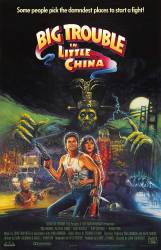
Question: When Lightning is crushed by the statue at the end of the movie, he sends out dozens of bolts of energy before he dies. The final wisp of electricity forms a Chinese character. Does anyone know what it means?
Answer: It's the symbol for "carpenter" after the director John Carpenter.

Question: Doesn't the water tower fall completely to the ground during the buffalo stampede in the original theatrical release? It's missing in the DVD release.
Answer: Yes, the water tower did indeed fall completely over in the initial release. I saw it fall all the way to the ground and release a flood of water. What happened was that the tower fell on the rump of one of the buffaloes, and the buffalo stumbled and got up and continued running. Later the animal rights people objected to the scene, so it was removed from the DVD, and all that was left was the tower shown leaning over.
Answer: Footage of the water tower falling has NEVER appeared in the film. My first viewing of the film was in Cinerama in 1962 and the tower doesn't fall over. It doubtless was supposed to fall over but for technical reasons it didn't come out right, and so no footage beyond seeing it wobble a bit has ever been in the film.
This answer is incorrect. The original release did have the tower fall over completely. There's even a picture of the flooding after it falls over. It was since deleted. Http://www.daveswarbirds.com/HTWWW/deleted_scenes.htm.
I agree. The tower fell and water poured out. I saw this movie in Cinerama in 1963. For years later, I wondered why I never saw that scene in its entirety again. A shame that for a mistake that caused the unintentional death of an animal, the scene should no longer be viewed by anyone.
Answer: I saw the film in Cinerama the week it came out and the water tower didn't fall. I remember being puzzled by the shot of it falling in the souvenir program.

Question: I'm unclear about the ending in this film. Was he really Don Juan and the stories he told about his sexual antics are true after all? And was he lying when he said that he really grew up in Queens, etc., just to get out of the hospital?
Chosen answer: I think the point is that it doesn't matter. He can be Don Juan if he likes - so can anybody - and who is to tell who someone else really is?

Question: Why does Manny make up excuses about his wife doing something when in reality she died?
Answer: Manny is struggling with her death and trying to care for Molly. In a moment of self denial and sadness, he just makes it up in hopes of tricking himself into thinking that everything is normal.

Question: At the Vermont lodge Judy is dancing with the same male dancer that Betty dances with at the same time in New York City at a nightclub. How can that happen?
Answer: The actors appear similar but they are different people. John Brascia danced with Vera Ellen in Vermont. George Chakiris danced with Rosemary Clooney in New York.
Answer: George Chakiris is in the background as a dancer in Vermont, but then mysteriously shows up in New York.
He's a stalker.

Question: If Peter Pan says that the Lost Boys fell out of their prams and weren't claimed in 7 days so they were sent to Neverland. This would make them infants. Why then are they like 7-12 years old if Neverland doesn't make you age?
Answer: It's not that you never age, it's that you never grow up, i.e. pass into puberty and become an adult.
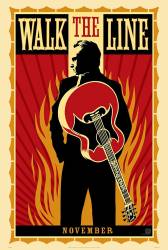
Question: After John's arrest in El Paso, in the following scene he's talking with Viv about the incident and denying he has a problem, even though she says everyone around him says so. She then asks about June and he says she left the tour and Viv responds with "Well that explains everything, doesn't it?" What exactly does she mean by that statement?
Answer: Viv's implying he is acting the way he is cause he is upset about June leaving.

Question: How did Tiana know that Naveen was going to marry Lottie? We don't find out until later that Lottie has to kiss Naveen in order for the spell to be broken and sure Lottie was attracted to Naveen but still, marriage wasn't mentioned so how did Tiana know? Did I miss something?
Answer: Naveen told Tiana about his plan to marry Lottie once they arrived in the swamp. After revealing that he's been cut off by his parents, he explains that he plans to regain his wealth by marrying her so that he'll inherit her father's prosperity.
Answer: Mama Odie tells Tiana and Naveen that Naveen must kiss a true princess in order to break the spell. Lottie is the princess of the Mardi gras parade so that would make her a princess and that would make it necessary for her to kiss Naveen and break the spell.
Tiana knew that Naveen was going to marry Lottie because Naveen tells her when they are running away from danger in the bayou. Naveen says 'when I marry Miss Charlotte LaBouff...' in an attempt to explain to Tiana how he intends to be rich again.
Naveen wasn't looking to marry a princess, just a "little honey whose daddy got dough", as said by the Shadow Man.

Question: Did one of the church ladies in the "Hit Me With Your Best Shot" scene, poop herself? The one with the floral shorts. Watch at the end when she is walking out of the church. (00:25:15)
Answer: The marks could be from when they were sliding across the pews.
Answer: 100% period! If you watch from the beginning of the scene, you'll see the stain slowly growing, also it's not on the side of her shorts, is in-between her legs, and eventually down the back.
Answer: Period shorts.
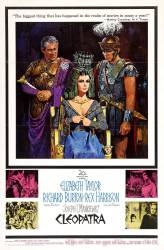
Question: During Rex Harrison's entire performance as Julius Caesar his arms and legs are covered by garments underneath his military garb and robes, even while in Egypt. The other Romans as would be expected have bare legs and arms. Was Harrison suffering from some skin condition or was he too shy or embarrassed of his limbs to show them in the film?
Answer: The people of higher rank would usually have more or better armor so in his case that would probably be extra armor for his legs and arms.

Question: When the animals go to tell the dwarves about the witch trying to kill Snow White, why is Grumpy all of a sudden concerned about her? He's the first one to say that they have to go rescue her and then is leading them back to the cottage, although up to that point he hasn't liked her at all.
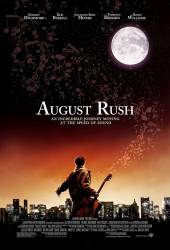
Question: What was the significance of showing us Lyla dropping her necklace outside the hotel? Louis didn't pick it up did he?
Answer: I think it was a necklace she was given by her father, and it breaking shows that she is breaking away from him. Her father picks it up, not Louis.
If her father picks it up, how is Wizard wearing it later in film?

Question: Why didn't he use his crazy super intelligence, or his telekinesis, to either find a cure for his tumor or at the very least slide the tumor out of his own brain?
Answer: 1. After losing consciousness a second time, George wakes up in the hospital and is told by Dr. Brunder that instead of the tumor destroying brain function, it has been stimulating it not only making George hallucinate seeing a bright light, but, was also responsible for giving him his abilities. Unfortunately, by the time the tumor was detected, it had grown out of control meaning that George had only a short time to live making a search for a cure impossible, especially since he was told there was a very slim chance of survival if he had it removed. 2. If George had tried to use telekinesis to remove the tumor, he would probably have ended up killing himself in the process.
Answer: George saw the alien light flash twice. The implication was that the first alien light flash actually created the "tumor" in George's brain, and it was the tumor that gave him his superhuman abilities. There's no way George could telekinetically remove the tumor or send it into remission because it was the source of his powers. If he started tampering with it, he would instantly lose his powers.
Ah yes.

Question: At the beginning of the film Fanny is at her cafe and stops to look at a Van Gogh print above the cash register. The print has Provence printed on it in yellow. At the end of the film she looks at the print but that time there is nothing printed at the bottom of print. What does this mean?
Answer: I think the Van Gogh is really part of his buy-out package from the brokerage. This is the copy which was hanging on the boss' wall, but not the original which the boss kept in the vault.
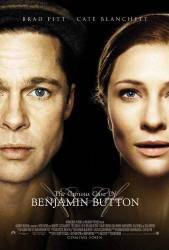
Question: At the end of the movie the town clock that was removed from the train station is shown stored in a basement just as the basement floods. The clock is seen to still be working, but how, given that there was no one there to wind it? As the clock was made during the first world war it would be mechanical, not battery powered.
Answer: It is symbolic, showing that time never stops. Everyone will be swept up by the tsunami eventually. No force of nature can compare to time itself. Nothing at all.
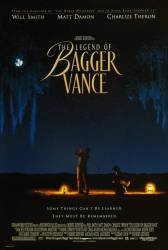
Question: Why is no credit given to Jack Lemmon?
Answer: There are many reasons that known actors appear in movies and are uncredited. Cameo appearances often go un-credited. Actors sometimes do a cameo if they are friends with the director or the other stars. It can add an unexpected surprise for the audience. There are also contract and payment issues if an actor receives billing in the credit. Jack Lemmon, who was the narrator for the story, may have preferred not being credited. He was certainly a big enough star that if he wanted to be listed in the credits, he would have received proper billing.

Chosen answer: Tomcats.
MikeH